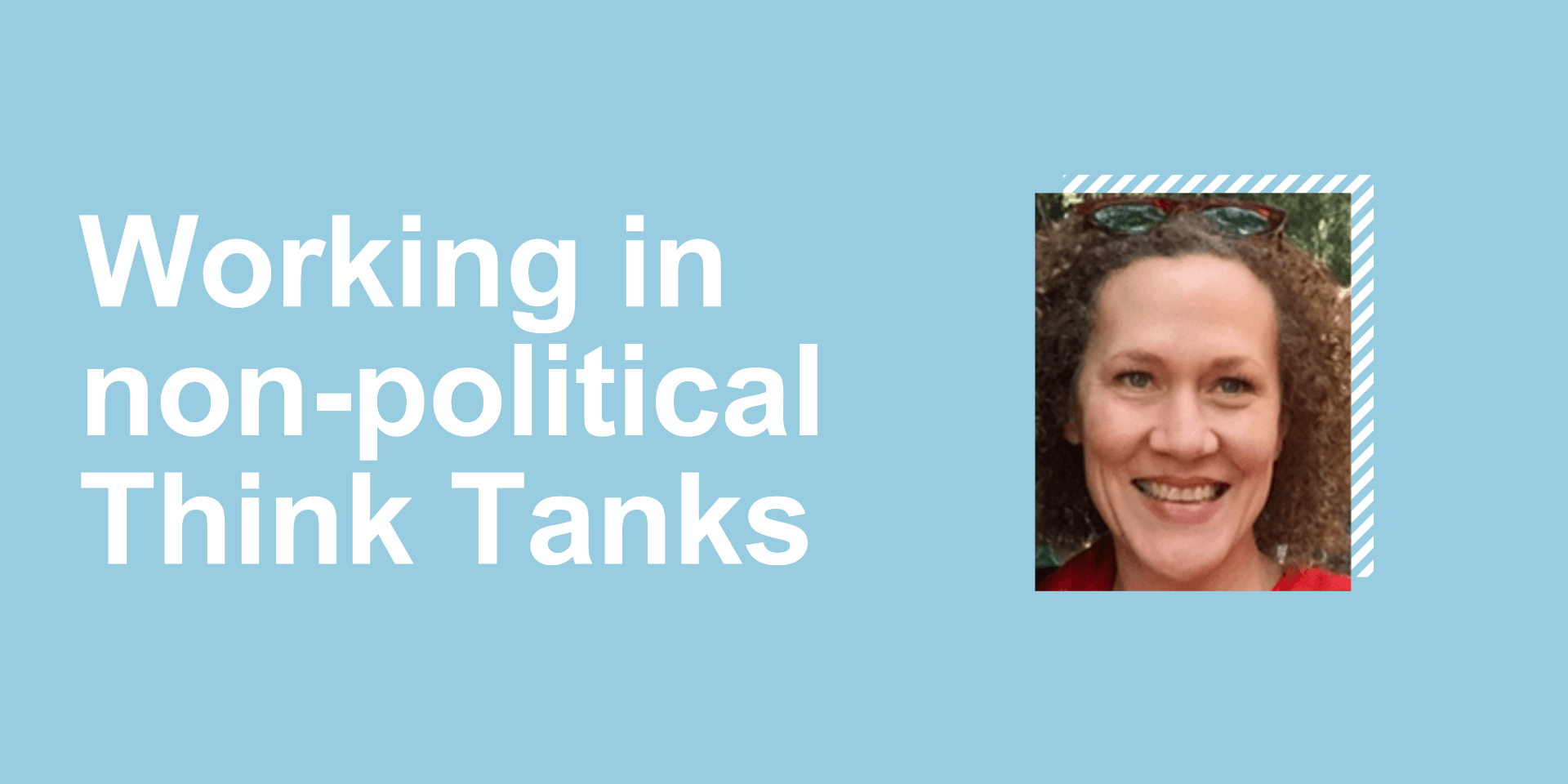Government & Policy Week: Working in Non-Political Think Tanks – Interview with Dr Moira Faul, Executive Director NORRAG, Graduate Institute of International and Development Studies Geneva
By skye.aitken, on 12 October 2020
Read time: 3 minutes
Written by Sally Brown, Careers Consultant at UCL Careers.
So, what is NORRAG and what do they do?
The network for international policies and cooperation in education and training (NORRAG) is a global network of 5,000 members for international policies and cooperation in education and training. NORRAG’s strength lies in addressing under-researched questions of quality and equity in key issues in education and development, and in amplifying under-represented expertise, particularly from the South. NORRAG’s core mandate is to produce, disseminate and broker analytical research and to build capacity for and with the wide range of stakeholders who constitute our network. Our stakeholders from academia, governments, NGOs, international organizations, foundations and the private sector inform and shape education policies and practice at national and international levels. Through our work, NORRAG contributes to creating the conditions for more participatory, evidence-informed decisions that improve equal access to and quality of education and training. NORRAG is an associate programme of the Graduate Institute of International and Development Studies, Geneva.
What is a think tank and how does NORRAG differ from other types of think tanks?
Most generically, think tanks are knowledge-producing organisations that are not universities. Some may be affiliated to specific political parties or positions, and their research is more politically motivated. Others, like NORRAG, are affiliated to universities and while the research they do is more applied than might be found in university social science departments, it remains analytical. Among analytical think tanks, NORRAG differentiates itself through our focus on surfacing and amplifying priorities and perspectives of experts from the global South and East alongside those from the North and West.
What led you to this role?
While my career ambitions have always been focused on a leadership position in international development and education, my path to this role has been quite circuitous! Originally from Zimbabwe, I held senior managerial positions in private sector adult education in Spain (1997-2001) and China (2002-03), and was then Head of Education and Youth Policy (UK) at Oxfam GB (2003-2009). My work led me to a question I couldn’t answer on Oxfam’s time, so I started a funded PhD at the University of Cambridge (2009-13), after which I managed a research-policy exchange programme. After moving to Geneva in 2015, I worked as Research Fellow at the UN Research Institute for Social Development (2015-16) and at the Public-Private Partnership Research Centre at the University of Geneva, before being promoted to Deputy Director and Senior Research Fellow (2016-19) at the Public-Private Partnership Research Centre.
What issues are currently affecting the work that NORRAG does? Do you feel similar organisations are also being affected in the same way?
The biggest challenge that non-political think tanks face is funding, although NORRAG suffer less than many since we are generously supported by the Swiss Agency for Development and Cooperation and Open Societies Foundation, as well as through research grants. Funding has always been tight, especially core funds that support the whole institution, but has become increasingly difficult for us and our partners. Increased government funding earmarked for applied development research is certainly helping.
Another, more positive, matter relates to the global Sustainable Development Agenda, in which organisations that may have specialised in one issue area or another (the environment, say, or health) are being challenged to consider the intersections between their specialisation and that of others: how does what happens in health affect the environment and vice versa? Education has such deep transversal effects on all aspects of sustainability that this is a challenge that NORRAG welcomes and actively embraces.
If a student/recent graduate were to apply to NORRAG – or similar – what do you feel would make an application stand-out?
Graduate applicants need to show that they have the technical research skills and knowledge base required for the post for which they’re applying: we research themes as diverse as public and private education finance, digitisation, education data (from children and schools through to international organisations and networks). They would also need to demonstrate congruence with our values of research integrity and analytical rigour, in addition to our vision of equal access to quality education and amplifying expertise from the South.
Do you have any top tips for students/recent graduates wanting to get into this sector/think tanks?
Do your homework on the organisation you’re applying to! Even more so than in other fields. There are so many different types of think tanks that there’s bound to be one that fits what you’re looking for; but you have to take the responsibility of making sure of that.
 Close
Close


